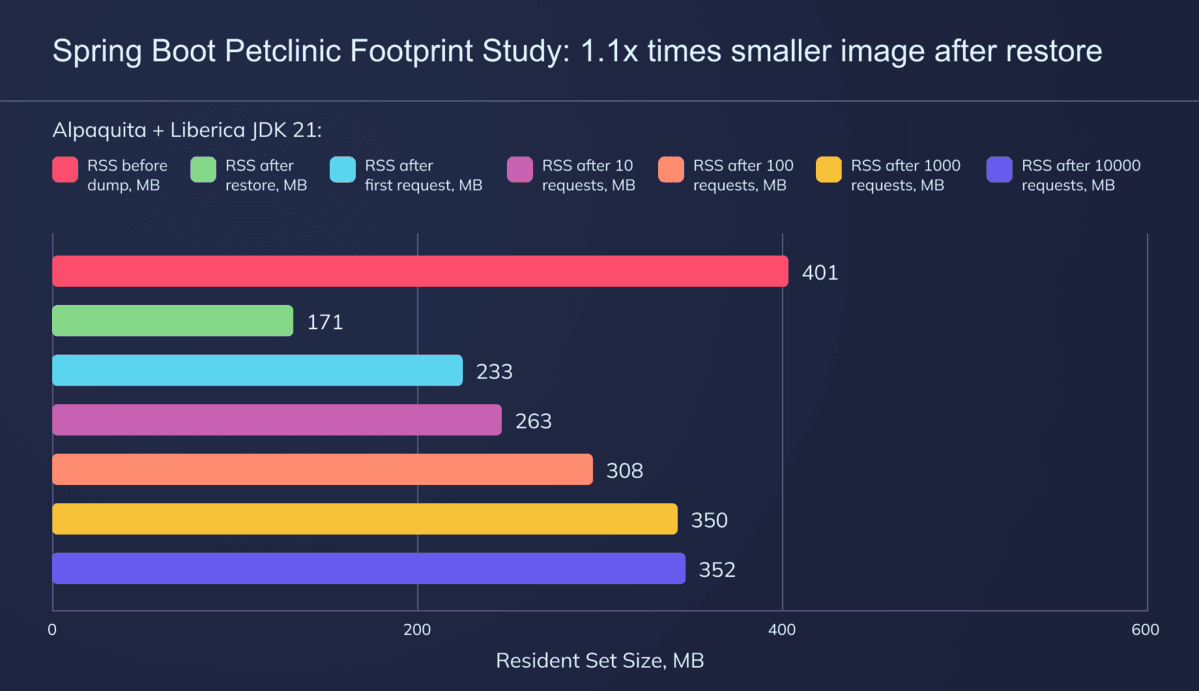Production-ready Containers, now with CRaC Support
Using Alpaquita in production is convenient with Liberica Runtime Containers!
Secure, performant, and regularly updated container images with Alpaquita Linux and Liberica JDK Lite are available for free on Docker Hub, GHCR, and MCR.
By integrating CRaC API support into Liberica JDK and Alpaquita Linux, we offer a comprehensive Java development and deployment solution.This solution ensures predictable scaling, higher availability, and reduced resource consumption by minimizing the startup and warm-up time of your JavaTM Workloads to near zero.
With services operating at peak performance from the get-go, resource planning becomes easy, precise and predictable — add instances as needed without over- or under-planning, thereby reducing operational costs for running and scaling your services
Learn how to use Liberica Runtime Containers



